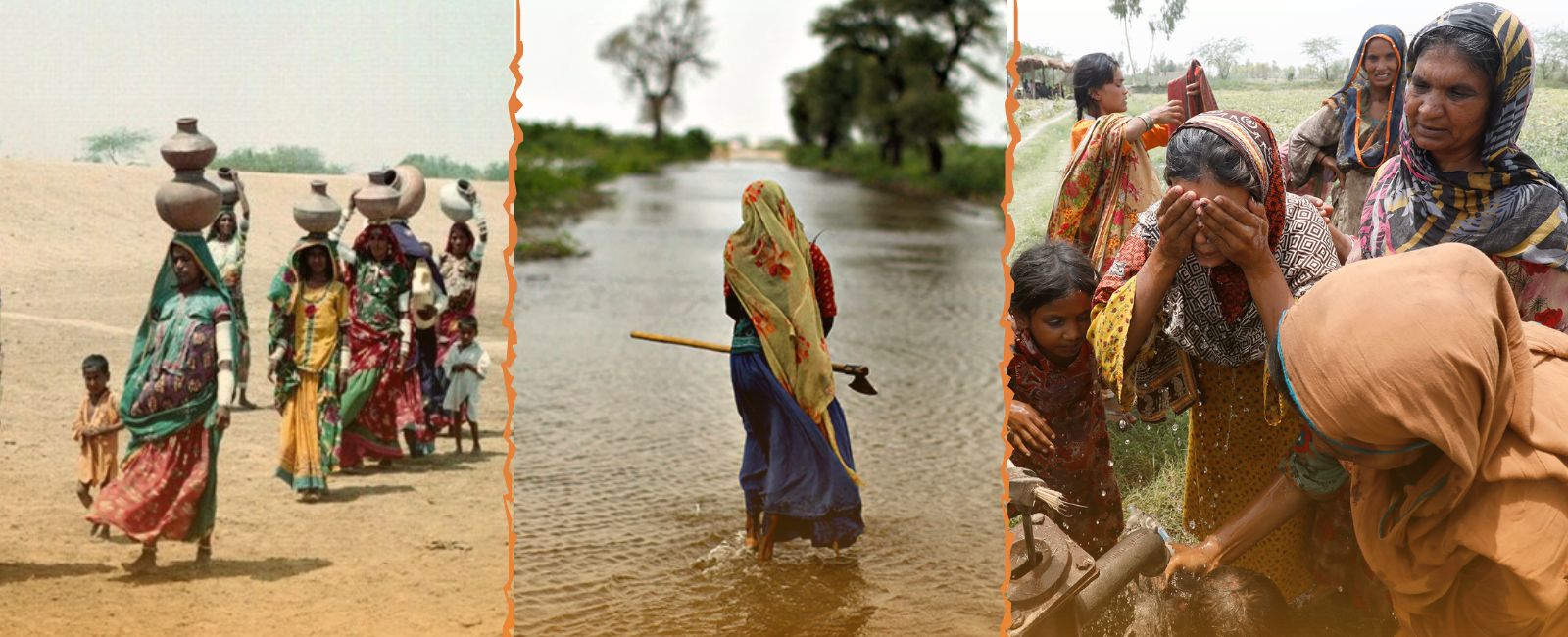Women: The missing link in Pakistan's climate chain of command
Govt needs to focus on transforming commitments into meaningful action by prioritising gender-sensitive climate policies

Farida Bibi still remembers the day the floods took her home, a simple mud house with four walls where her family felt safe. Everything, along with what was inside, was gone with the water.
It was 2022.
She was heavily pregnant and had to walk miles just to find water. Her four children, three daughters and a little boy, were always in tow.
“There was no roof over our heads,” she says, her voice breaking. “No one asked what we needed. In our society, men sit in meetings and decide our fate. We stand in line — for food, for water, for medicine. People call it a disaster. For us, it’s life. And it feels worse than death.”
Farida lives in a village in Sindh that was completely covered by floodwaters. Her story is not unique. Thousands of women across Pakistan went through the same nightmare during the 2022 floods, but most of them remain unheard and unseen.
On paper, Pakistan’s climate policy sounds absolutely on point. There is an array of strategies, plans, and promises that talk about women, but in reality, there is a yawning gap between what is written and what women actually experience, and it's painful.
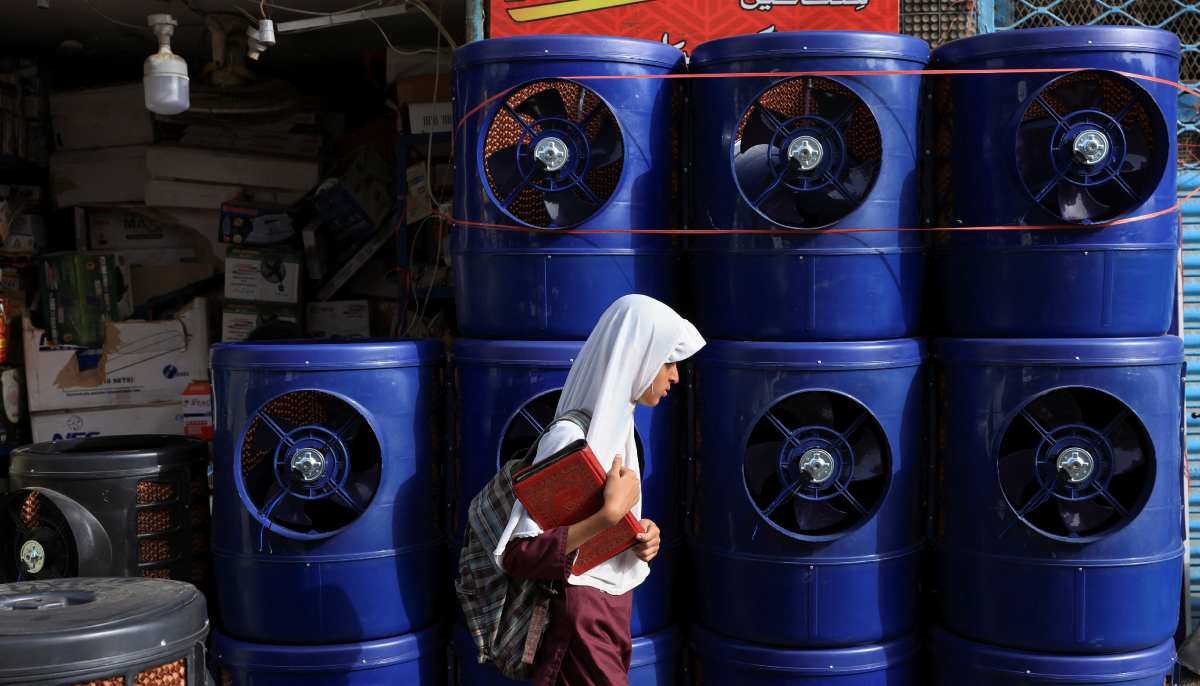
It goes without saying that no one is immune to the adverse impacts of climate change, but the way relief and help are delivered is riddled with alarming inequalities. It is the men who control who gets aid and support as women don’t get to make most of such decisions in Pakistan. In rural Pakistan, women are often neglected by design and left to fend for themselves without the support they deserve, whether during disasters or in their everyday lives.
This is not an accident. It is how the system was founded and then built and rebuilt over and over again — change has never been an option.
From access to relief, healthcare, and safe shelter, women face problems that men do not because the system was never designed to help them.
The numbers tell a disturbing story. The 2022 floods affected 33 million people in Pakistan. More than 8 million of those were women of childbearing age, while over 650,000 pregnant women were cut off from maternal care. Sadly, many had to give birth outside, in the open, without hygiene, safety, or even basic dignity.
Pakistan ranks 145th out of 146 countries on the World Economic Forum’s gender gap index. This inequality only gets worse during disasters. Cases of violence against women increase. Access to food, water, and medicine becomes harder. Women, sometimes systematically are forced further to the fringes, where they are actually struggling to survive.
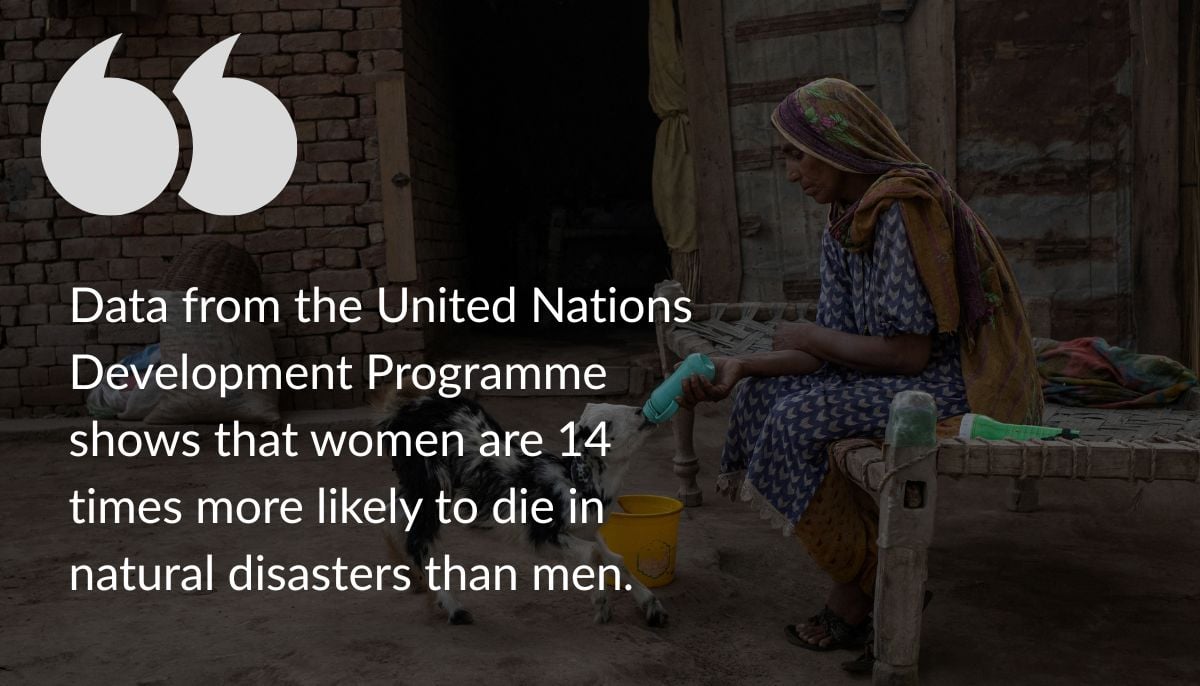
Data from the UN Development Programme shows that women are 14 times more likely to die in natural disasters than men. Yet women are much less likely to be included in decisions that could save their lives.
Women’s exclusion is often invisible in policy and planning. Many relief efforts do not think about women’s needs, such as menstrual hygiene or safe spaces. In temporary shelters, women face harassment and abuse. In flood-affected areas, social rules often limit women’s movements, stopping them from getting help or earning a living.
"Climate-related policy papers or laws cannot save us unless women are fully involved in decision-making," says Huma Alia, a climate advocate in Balochistan. Women very well know how to adapt; however their voices are ignored, and decisions fail at the time of implementation, which is highly unfortunate.
Pakistan has recently doubled down on its commitment to addressing the intersection between gender and climate challenges through progressive policies and initiatives. One such step is the creation of a Gender and Climate Change Cell under the Ministry of Climate Change to ensure the mainstreaming of gender issues into policy development. It also highlights gender-sensitive adaptation strategies in the National Adaptation Plan.
Accordingly, the Climate Change Gender Action Plan (ccGAP), introduced in July 2022 through collaboration between the International Union for Conservation of Nature and funded by the Green Climate Fund, is a crucial element in promoting gender-sensitive climate action. The ccGAP is integrated into six sectors, including disaster risk reduction, agriculture, forests, coastal management, water and energy, and cross-cutting issues.
Key measures of this plan include the requirement for gender-responsive actions in climate-related projects and institutional reforms, such as amendments to set gender sensitivity and gender-responsive budgeting in national policies. The plan also focuses on prioritising leadership and education through gender-climate modules in school curricula and integrating women into decision-making roles.
The ccGAP complements Pakistan’s Nationally Determined Contributions, enhancing gender-sensitive programming in sectors such as waste management, health, and research.
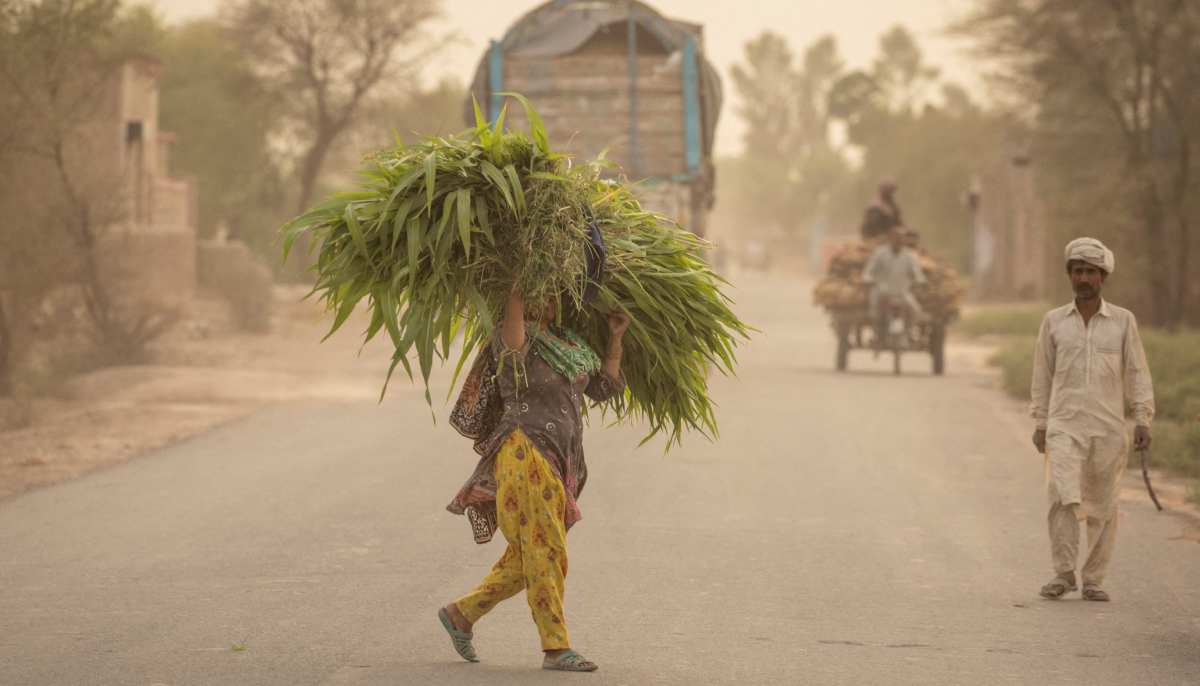
Azad Jammu and Kashmir (AJK) has a similar plan. Women there walk miles to fetch water from shrinking glaciers. Along with water shortages, they face more domestic violence, poor health, and poverty. The AJK plan suggests involving women in disaster response and giving them the tools to cope.
However, these plans are often not funded well or are ignored.
Women make up about 70% of Pakistan’s farm labour force. Yet they get almost no support to adapt to climate change. Their work keeps communities going. Their knowledge could help build resilience. But they are left out of conversations, where their voices matter.
Most rural women don’t own land. Many cannot read or write. Because climate data is rarely split by gender, their problems stay hidden. In places like AJK, women are often completely left out of policy talks, and this silence is quite damaging.
Sharing her story, Rukhsana Bibi, from Jacobabad, said she escaped the floods with her children and lived for months in a tent city in Karachi. “The landlord took all the aid,” she says bitterly. “No one helped us rebuild. Not the government. Not the NGOs. The flood took our home, but the neglect took our children’s future.”
Rukhsana’s story is common in flood-hit areas. Aid meant for vulnerable families often ends up with local powerful people. Women’s needs stay invisible to the system.
If Pakistan wants to be serious about climate resilience, it must turn good intentions into real action. That means funding women-led projects, creating spaces for rural women to lead, training women as climate responders, and including gender in every step of climate planning, not just in writing but in real life.
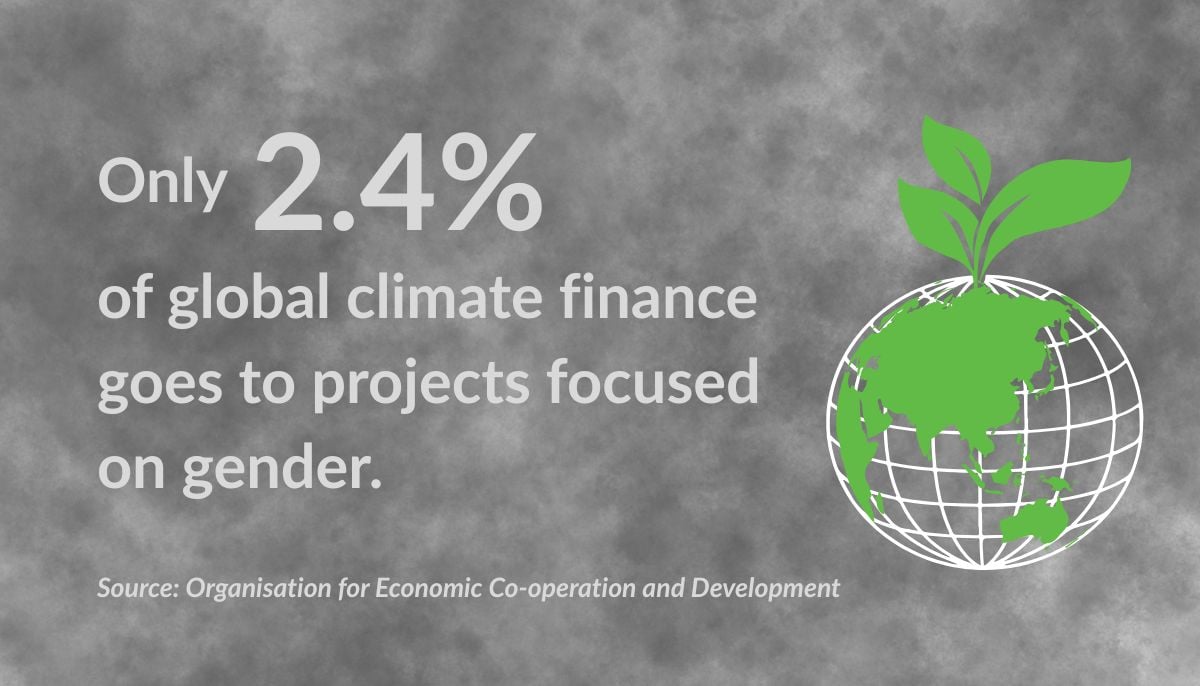
Right now, only 2.4% of global climate finance goes to projects focused on gender, according to the Organisation for Economic Co-operation and Development (OECD). This must change. Community organisations can help close the awareness gap. Schools should teach that gender and climate are connected. And data collection must focus on women, not leave them out.
The government needs to focus on transforming commitments into meaningful action by prioritising gender-sensitive climate policies through targeted measures. This includes enforcing gender budgeting as part of climate finance to ensure resources reach women and address their specific needs effectively.
Women also bring special strengths to dealing with climate change. Their local knowledge about water, crops, and natural resources can lead to better solutions. In some communities, women-led groups have created flood early warning systems and sustainable farming methods, but their work rarely gets enough support or attention.
Experts warn that ignoring gender in climate policy could waste billions of dollars. A UN Women study found that including gender in climate programs can improve their success by up to 40%.
Right now, gender-sensitive climate policy is the missing piece. The plans are there, and the frameworks exist. What is missing is follow-through. Until that changes, millions of women will be left behind.
But it does not have to be this way. With political will, smart funding, and by listening to women, Pakistan can build a future that is not just able to survive climate change but is fair and just.
Muhammad Toheed is an urban planner, geographer and Associate Director at Karachi Urban Lab, IBA. He posts on X @UrbanPlannerNED
Fatima tuz Zahra is a development practitioner from Bahria University's social science department.
Header and thumbnail illustration by Geo.tv



